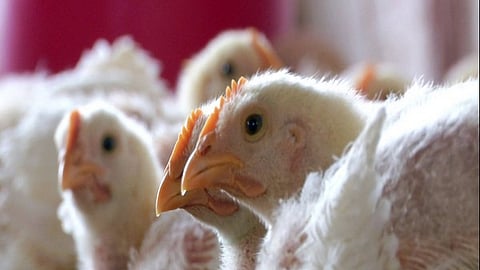

HYDERABAD: Human infection with avian influenza A(H5N1), commonly known as Bird flu, has sparked concerns following recent outbreaks in poultry.
Although no human cases have been reported in India this year, sporadic outbreaks in Maharashtra and Andhra Pradesh have led to sudden poultry deaths attributed to the H5N1 virus. In response, the state government on Tuesday restricted poultry transport from AP after an outbreak was confirmed in East Godavari district.
According to the World Health Organisation (WHO) global framework, avian influenza originates in animals but can spill over to humans through human-animal interaction, wildlife trade, or exposure to infected poultry and contaminated environments.
Dr Kiran Madhala, professor of Critical Care Medicine at Gandhi Medical College, stated that no new human infections with H5N1 were reported in the Western Pacific Region between January 31 and February 6. The last recorded case was in Cambodia on January 1, 2025.
While the virus remains less virulent, experts emphasise the importance of recognising symptoms.
Dr Hiran S Reddy, Consultant Physician and Critical Care Specialist, told TNIE, "In humans, avian influenza symptoms can range from mild to severe. Common symptoms include fever, cough, sore throat, muscle aches, and conjunctivitis. Severe cases may lead to breathing difficulties, pneumonia, acute respiratory distress syndrome, or multi-organ failure. The incubation period typically lasts three to five days, but can extend up to ten days depending on factors like viral strain, exposure dose, and transmission route."
Dr Hiran further noted that while human infections remain rare, the overall risk to the general population is low. Although there is no immediate emergency, doctors stress the need for preventive measures. Dr Shiva Raju K, head of the Medicine Department at KIMS Hospital, urged caution, particularly for poultry farm workers and logistics personnel, who are at higher risk of exposure.
"A cautious approach is crucial to containing the outbreak. Those working in poultry farming and logistics must take extra care. Additionally, it is advisable to avoid eating raw or undercooked chicken and eggs. Fully cooked chicken and properly boiled eggs are safer options," he said.